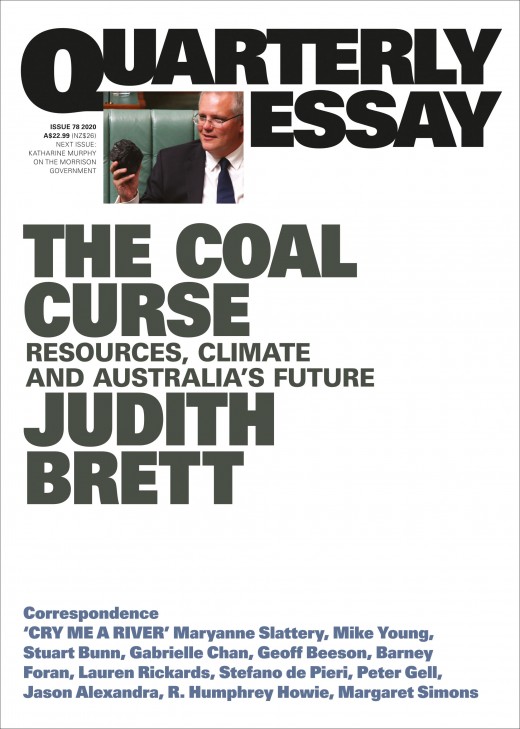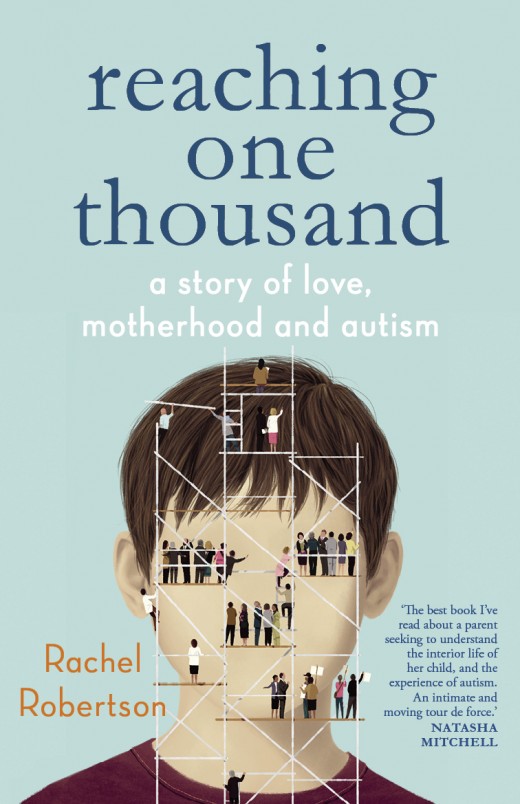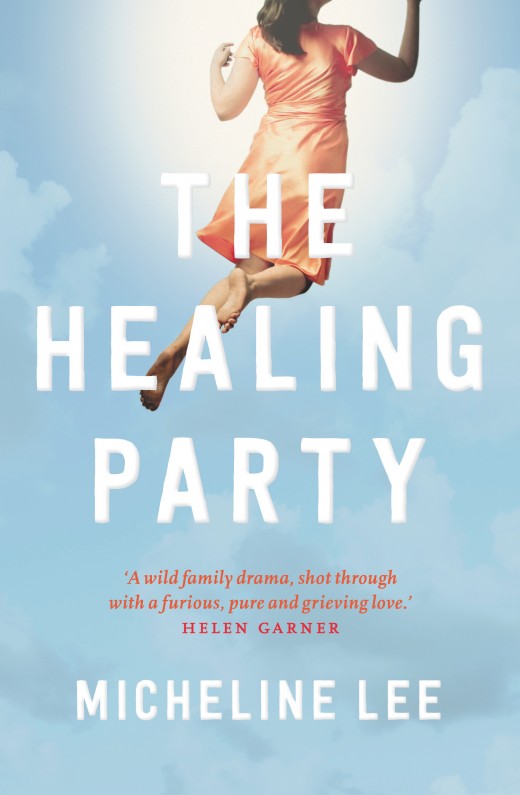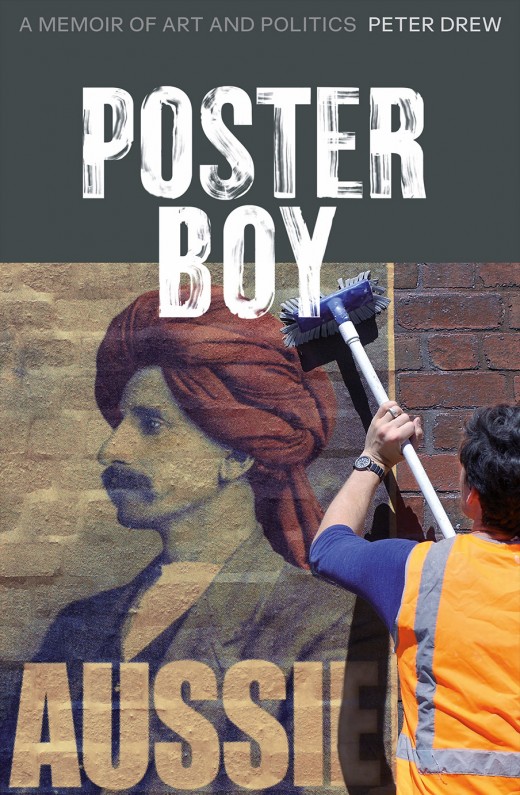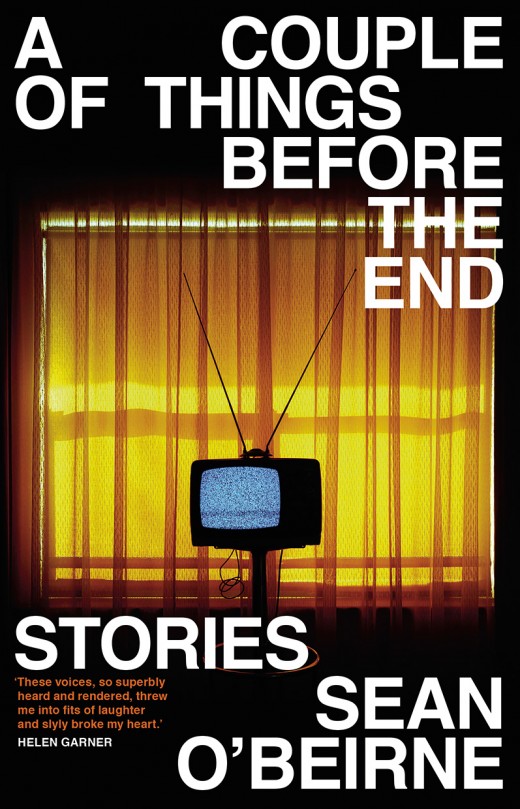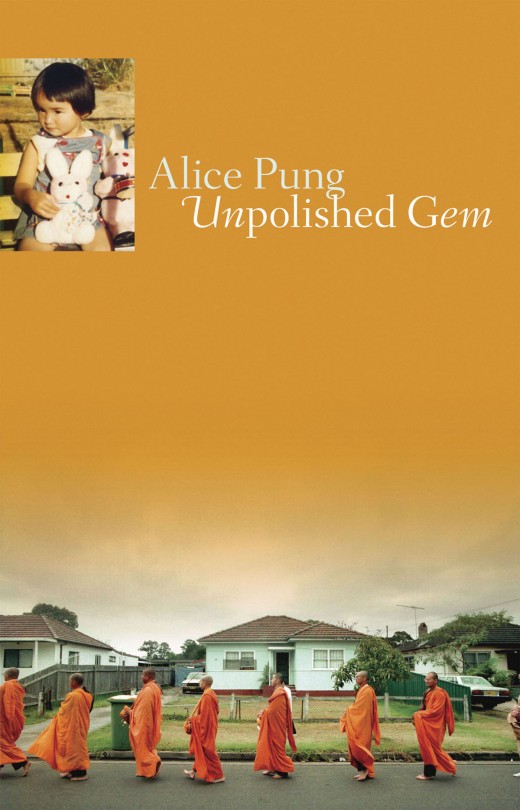News
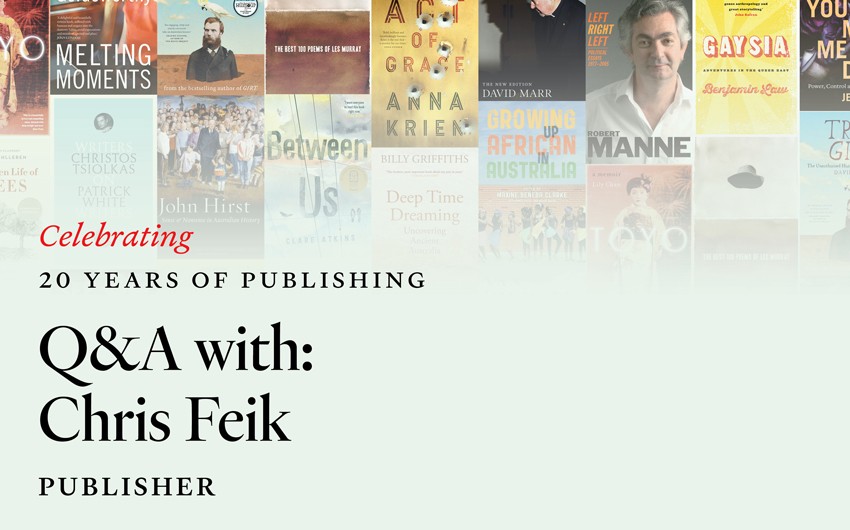
News >
20 years of publishing: Q&A with Chris Feik
Our senior publisher shares his pathway to publishing and the underrated books you might have missed.
It’s our birthday! We’re celebrating 20 years of publishing with 20% off 20 books. We also chatted with publisher Chris Feik about some of his favourite books and his advice to people wanting to work in publishing.
What was your pathway to publishing? Have you worked in other areas of the book industry?
After university, where I studied literature and social theory, I did many bookish jobs: helping with the mail-out at Australian Book Review under Helen Daniel, receiving books, selling books, buying books – all at Readings Carlton – reviewing books, editing books, teaching editing, and so on. Then in 2000 I was hired for an editor’s job at Black Inc., where I have been ever since.
What are the books that shaped you, or had the biggest impact on your life?
As a child I read very widely, and that probably had the biggest impact. Some key moments over the years: Enid Blyton, Hergé, Pauline Kael, Orwell’s essays, Proust, Kant.
What’s the book you’re most proud to have published?
I love all my children, but if I had to choose I would nominate not a book but a series: Quarterly Essay.
Which books do you feel should have had a bigger reach, and that readers might have missed but should definitely read?
There are so many. A few years ago, I published Reaching One Thousand, a memoir that is a rare blend of intellect and emotion. But not enough people read it. Micheline Lee’s novel The Healing Party is dramatic and original. Peter Drew’s memoir Poster Boy is remarkable for its intelligence and honesty. Most recently, Sean O’Beirne’s A Couple of Things Before the End comes to mind. It is so funny and such a literary achievement that I think everyone should read it.
What are the key things you look for in a manuscript, and how do you know when you've found a gem?
Unpolished Gem is a good example. I read it thinking I had never encountered a voice quite like this. Good writing can introduce a new idea or feeling into the world. Line by line, there is also usually a lot going on, which gives it a kind of energy.
What kind of books do you like to read (when not reading for work)?
I like to read philosophy books, which I barely understand. Also political and social history.
What’s the biggest change you’ve seen in publishing over the years?
The fundamentals don’t much change, but for publishers a big shift has been the many avenues through which to sell a book. Once we sent the whole print run to a local distribution warehouse, but now we also sell direct, supply ebooks, market online, etc., etc.
Booksellers and festivals are doing it tough amid COVID-19. How can the industry get through this? How can people help?
Short answer: buy books, especially from local and independent booksellers. Also, support authors by attending virtual events and the like.
What do the next twenty years look like, for Black Inc. and the industry? What’s the biggest challenge?
A changing world needs books – to explain, evoke. So there will always be a need for publishers, to help authors do what they do as well as possible. The biggest challenges are pragmatic and attitudinal. First, finding a way to make the numbers work. And second, publishers can never stand still, but they also need to think long-term. Like all of us, they need to be both progressive and conservative.
Any advice to people looking to get into publishing?
Read widely. Always useful to have worked in a bookshop. Grammar is good, especially for editors.
Stay tuned for more Q&As with the Black Inc. team.


